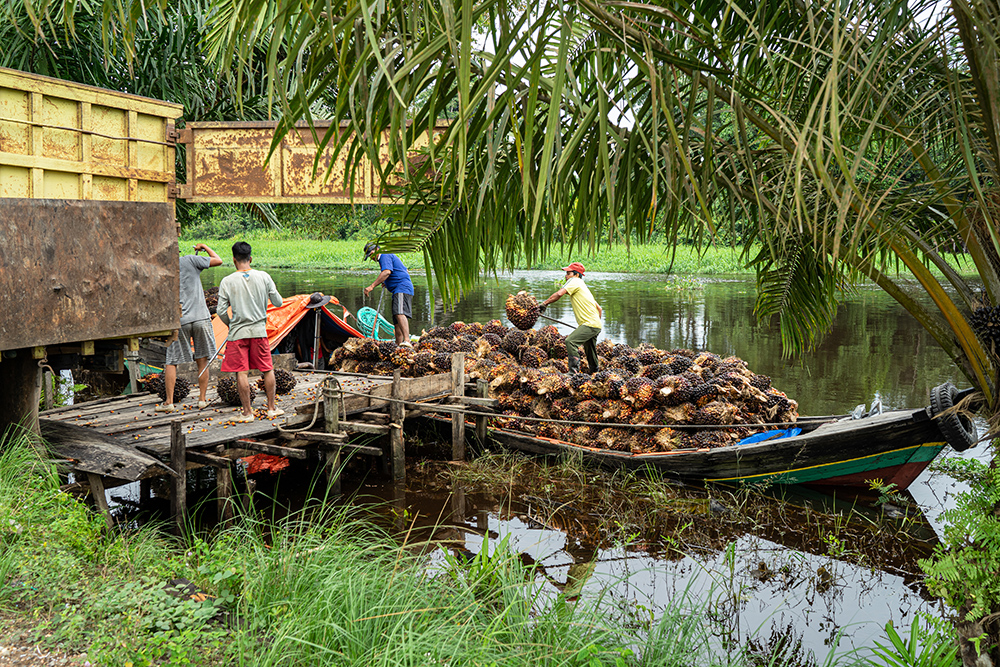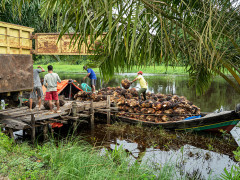Chapter 1: Report After Three Years on The Food Estate Project in Central Kalimantan
By Oriz Anugerah Putra, Desti Ayunda (WRI Indonesia), Agiel Prakoso, Iola AbasPalm Oil Is Not an Option to Absorb Carbon

Of the total 16.38 million hectares of oil palm plantations in Indonesia, it is claimed to be able to absorb 2.2 billion tonnes of CO2 equivalent emissions per year. However, Pantau Gambut sees this claim as dangerous since it can potentially cause more chronic damage to forest ecosystems, especially peat.
The claim made by Musdalifah contradicts the emissions released when 1.02 million hectares of concession areas on peatland burned in the 2015-2019 period[1]. Every hectare of land burned can release 427.2 tons of carbon[2], where the methane released (CH4) is 21 times more dangerous than carbon dioxide (CO2).
A recent study conducted by Pantau Gambut through satellite monitoring in three provinces (Central Kalimantan, West Kalimantan, and Jambi) also found several new cropping patterns in burnt areas within one km outside the oil palm plantation concession area[3]. Clearing peatlands by burning is still popular for concession owners, even though certification such as ISPO is starting to be widely used.
The policy for granting permits to concessions in forest areas is also problematic. The ultimum remidium approach is used to "whitewash" 857 oil palm plantations covering 3.4 million hectares in forest areas without valid forestry permits. As a result, the sanctions given were only administrative. The government simplifies the ultimum remedium approach. In contrast, many legal experts explain that ultimum remedium is carried out if other sanctions are ineffective or fail to achieve the goal of imposing sanctions. The application of ultimum remedium must pay attention to the effectiveness of implementing administrative sanctions, not considering the ability to pay administrative fines. Its application on corporate crime is inappropriate.
Pantau Gambut reminds the Coordinating Ministry for the Economy to be careful not to oversimplify data and present it in pieces without considering the facts on the ground and environmental impacts as a whole. Peatlands in Indonesia store around 57 gigatonnes of carbon, or around 30% of the world's carbon. Carbon stocks stored in peat soils will be released into the air if peatlands are drained or converted. It has the potential to contribute 63% of the world's total carbon emissions.
[1] Piecing Together the Puzzle Pieces of Peat Ecosystem Protection in Concession Areas | Pantau Gambut
[2] Climate change impact mitigation | Pantau Gambut
[3] Alert of Forest and Land Fire Vulnerability in 2022 | Pantau Gambut
Media Contact
If you need guidance or consultation related to this publication, you can contact:
Anton Widjaya 0811574476 Program Manager Pantau Gambut
Wahyu A Perdana 082112395919 Campaigner Pantau Gambut



